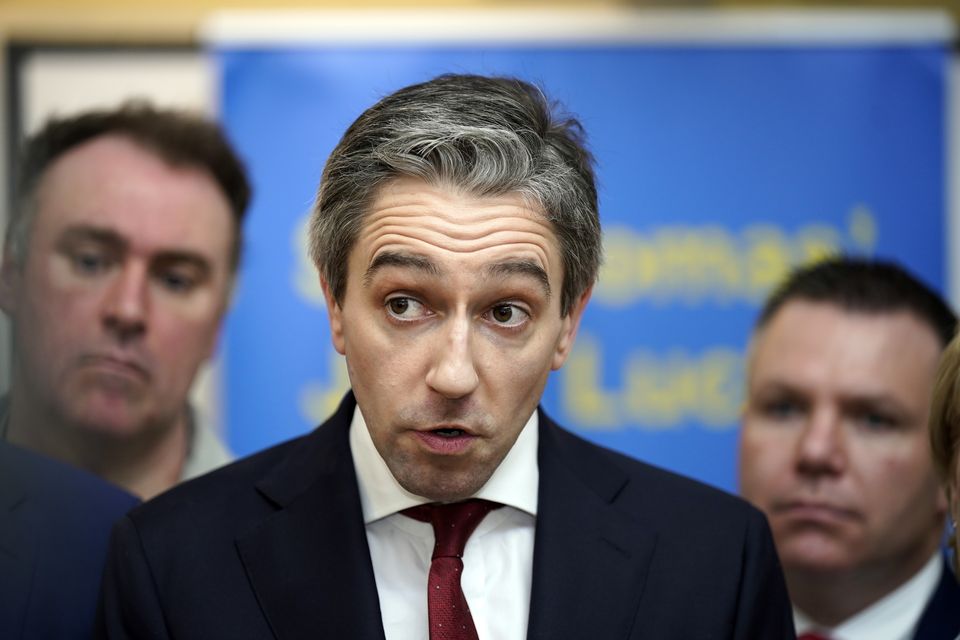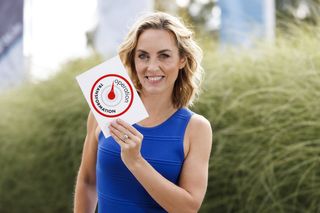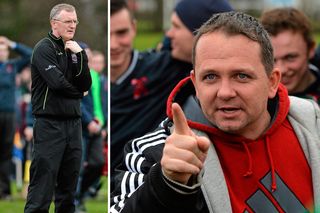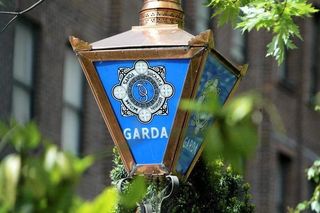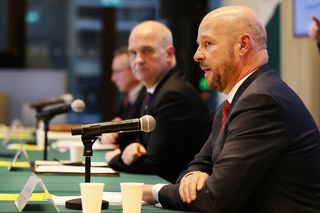Reduced waits for driving tests and NCTs among changes promised to curb road traffic deaths
Simon Harris
Driving test waiting times will average 10 weeks by the middle of the year, road safety chiefs have told the Taoiseach.
NCT invitation to test waiting times will also be cut down to 12 days by the summer.
The two promises were made at a meeting with Simon Harris, Ministers Helen McEntee, Eamon Ryan, Jack Chambers and Road Safety Authority chiefs Liz O’Donnell and Sam Waide
An Garda Síochána will also be asked to provide ongoing enforcement activity plans as part of efforts to tackle spiralling deaths on Irish roads this year.
The RSA will spend an extra €3m this year on road safety campaigns and education initiatives from their own reserves.
The authority will also be tasked with looking at what extra funds they need this year and they will come from the Department of Transport.
Collision data will also be shared and law changes will be made if necessary following proposals from the RSA-led Data Enabler Group to the Data Protection Commissioner.
A total of 12 new camera enforcement sites in the coming months will be put in place, three of which are average speed cameras.
These enforcement cameras will also be able to identify mobile phone use and whether or not seatbelts are worn.
The driving test curriculum will be reviewed, something which has not been undertaken in over 30 years.
Motorists who ignore traffic lights will be caught and automatically fined when new ‘red light cameras’ are introduced later this year.
The cameras will be positioned at junctions where motorists routinely run red lights, starting in Dublin and then rolling out to the rest of the country.
Mr Harris said: “After nearly two decades of positive progress, we have seen recently a sudden, and worrying, increase in road deaths.
“The rise in the number of deaths on our roads is unacceptable, and a renewed focus is needed on road safety and driver behaviour.”
The idea of cameras at traffic lights has been talked about for a number of years, but Transport Minister Eamon Ryan said they would soon be introduced as part of a number of new automated traffic enforcement measures.
Cameras would also monitor bus lanes to capture and penalise drivers of unauthorised vehicles that use them, he said.
“We are about to get them,” Mr Ryan said.
“It is first and foremost for the everyday management of bus lanes, of parking, of traffic light adherence.
“When we do surveys, we find a large number of people are breaking lights and that's a huge safety concern.
“So yes, among the whole series of new camera technologies we’re going to introduce will be the introduction of cameras, starting in Dublin, where you have an automated system that captures any breaking of lights or entry into bus lanes inappropriately.”
Fines would issue automatically to reduce the time and cost associated with prosecuting offences, he added.
“It will be later this year into next year,” he said.
Mr Ryan, junior transport minister Jack Chambers and Taoiseach Simon Harris met with officials amid growing alarm over the 31pc increase in road deaths so far this year.
“We have to turn those figures around and I’m convinced we can and will,” he said.
Along with new cameras, he said there would have to be a focus on increasing enforcement through having more Gardai on the street and on the beat.
He said preparations to reduce the default speed limits on national and non-national roads were being fast-tracked but the need to change every road sign on every road took time.
Under the changes, roads where a 100kmph limit applies will reduce to 80kmph, and 80kmph roads will change to 60kmph.
In urban areas, the 50kmph default limit will reduce to 30kmph except where local authorities deem it unnecessary.
“Councils will need time to make that assessment,” Mr Ryan said.
In recent days, the Irish Independent revealed that dedicated roads-policing officers will not be on duty between 2am and 7am most days, according to a plan agreed by Garda Commissioner Drew Harris.
“I am concerned about the level of garda resources in road-traffic policing,” Mr Harris said in Lucan, Dublin.
“I know the commissioner has to make difficult decisions with the resources available to him. I want to see those resources increased, so does he and I expect them to increase during the course of this year.”
Sixty-three people have died on Irish roads so far this year. That’s 15 more than for the same period last year.
Of those deaths, 41pc involved drivers, passengers, pedestrians and motorcyclists aged 30 and under.
Details of the new roster emerged just days after Commissioner Harris ordered that every officer on duty must undertake at least 30 minutes of road policing daily, in a bid to combat the alarming spiral in road deaths.
Join the Irish Independent WhatsApp channel
Stay up to date with all the latest news
